
OCEANOGRAPHY 1 LECTURE (OCAN 1) -- City College of San Francisco
INSTRUCTOR: Katryn Wiese *|* kwiese@ccsf.edu *|* Office hours
**Interested in the lab? It's a separate course: see Oceanography Lab.
Want to add the class? Review my add policies
Welcome To Oceanography 1
Welcome: video tutorial
(1 min, 19 MB): Video | Video w/CC | Script
In this course we will cover a range of ocean topics including its formation, its development and exploration, societal impacts (from and to the ocean), seafloor features and depths (islands, trenches, and coastlines), seawater chemistry, weather and climate impacts, mixing, waves, biological ecosystems, and more. The class has been designed to maximize your interaction with the material, engage and incorporate your own life experiences, and inspire your respect and stewardship for the world's oceans. (OCAN 1 Official Course Outline)
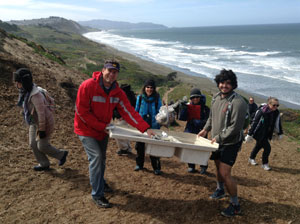
Upon completion of this course a student will be able to:
- Apply scientific inquiry and investigation of evidence to critically evaluate oceanographic principles.
- Communicate oceanographic ideas and theories effectively.
- Apply scientific principles, theories, or models to explain the behavior of oceanographic phenomena.
- Evaluate human interactions with the oceans and the societal impacts.
As your instructor, I am committed to finding the most effective ways to engage you with the material and help you to learn. My class formats and teaching methodologies are all designed to help you build your understanding of the material, then kick it around and ask questions of me and your fellow students so you can strengthen it. Through textbooks and online video tutorials, all of which you access at your own pace, you will begin the process each week of learning the new material. During the week, you will refine and strengthen that understanding through active learning: completing assignments, reviewing them against a key, and engaging in discussion with me and your fellow students.
Why this model? Studies of learning, especially in science, show that students learn concepts best by active application of concepts -- assignments, testing, note-taking, thinking through puzzles -- and integrative discussion with your fellow students and me, your instructor. Traditional lecture may be comfortable for some of you, but it is shown not to be an effective way to learn.
- Harvard Gazette: Study shows students in ‘active learning’ classrooms learn more than they think -- 2019
- Inside Higher Ed: Smarter Approach to Teaching Science -- 2017
- Journal of Geoscience Education: Instructional Utility and Learning Efficacy of Common Active Learning Strategies -- 2017 -- McConnell et al.
Whether you're taking the class in person or online, learning the material is ultimately up to you and how much time and effort you put in (preparation and practice). I will help and guide you, but I can't simply make you learn. If you're struggling, reach out. I want to help. Welcome!
Class time commitment: 17.5-week course: 9 hours per week of work, whether online or in person -- a combination of lecture, group work, discussion, and review.
Lab? The Oceanography Lab (OCAN 1L) is a separate class, in which you can enroll concurrently with the lecture, after having completed the lecture, or not at all. Unsure? Check it out and email me if you have questions.
Prerequisites? None. However there is an advisory: completion of Geometry and Algebra 2 and completion of or concurrent enrollment in college-level English.
CLASS RESOURCES
- Use your Oceanography 1 Workbook to:
- Review images, data, text, and tables from weekly video tutorials.
- Access and complete at home weekly chapter worksheets.
- Access and complete weekly activities.
- Use CANVAS to:
- Review class syllabus, policies, and schedule.
- Access and watch weekly video tutorials.
- Review additional web resources to assist with weekly content.
- Turn in completed weekly chapter worksheets and activities.
- Complete weekly quizzes and, if applicable, exams.
- Check keys and correct completed assignments.
- Review grades.
- Use class time, office hours, or CANVAS online discussion boards to:
- Check and review completed assignments.
- Engage in collaborative review and discussion of lecture topics.
- Ask questions of your fellow students and me.
Follow this link to the PDF version of the Oceanography 1 Workbook and instructions for how to purchase it. Get it early. All your semester work will happen in this workbook.
You will also need to photograph or scan your completed assignments, combine each assignment into a single PDF, and upload them through the CANVAS tool. You can do this through Google Docs or Microsoft Word or a number of other software programs. The following video will help:
Combining images into a PDF for upload Video | Video w/CC
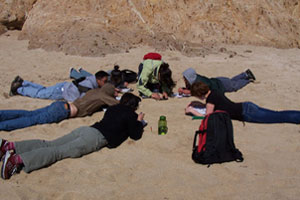
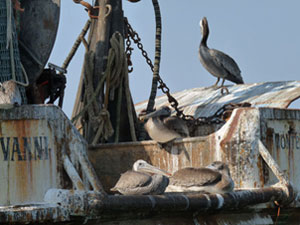
IS THIS THE RIGHT COURSE FOR YOU?
Let's review some of the basic logistics of this course, and then you'll know whether you're ready for it.
- Is this your first science course? Student with the best chance of success in this class are those with a strong background in math and English (it is advised that you have completed Algebra 2 and Geometry and have completed or be co-enrolled in college-level English).
- Are you comfortable with technology? During this semester, you will be watching online video tutorials, scanning and uploading completed assignments, and completing online quizzes and exams to demonstrate your understanding. Video tutorials, quizzes, handouts, and helpful resources can be found in CANVAS (you will not have access to CANVAS until the start of the semester).
- You need solid internet connection and access to YouTube style video play (any browser, most devices) to access video tutorials.
- You will need access to a scanner or camera, so you can scan completed assignments done by hand.
- You will need access to Google Docs or other software that will allow you to combine multiple scanned images into a PDF for upload.
- You will need access to CANVAS to upload your completed assignments and complete quizzes and exams.
- Do you have enough time in your schedule? The weekly workload for this class is, on average, 9 hours for 17.5 weeks, broken down, generally as follows:
- Watching weekly video tutorials and referencing the textbook as needed (~2 hours per week)
- Completing and correcting the chapter worksheet that goes along with the tutorials (~2.5 hrs per week)
- Completing and correcting the weekly activity (~2.5 hours per week)
- Practicing and reviewing material prior to quiz (1 hr/week)
- Taking quizzes (~20 min/week).
- Other miscellaneous activities like accessing additional review resources (textbook and web resources), and communicating with other students and me.
General-education science classes are not easy. They really do require consistent effort. Your best chance of success, regardless of which class section you enroll in, is to have positive and regular engagement with me and your fellow students and to keep on task (meeting deadlines and keeping up each week). As your instructor, I will do my best to provide you these opportunities. It will be up to you to step up and engage! I look forward to meeting all of you and having you meet each other.
QUESTIONS?
If you have any questions or concerns regarding class format or content, remember your resources are the videos, CANVAS, your workbook (figures and tables), textbook (optional), me, and each other.
- My office hours. See schedule at my website.
- CCSFMail (student Google Mail accounts) instructions and access to many CCSF technology services can be found at MyCCSF.
If you have forgotten your password, log into your myRAM account and find the CCSF Mail password reset under your profile. - CANVAS: You are welcome to login early to view the class in CANVAS (available only if you are registered and only after college loads classes a few weeks before semester starts). However, you cannot complete assignments in CANVAS until the first official day class starts. To access videos anytime you want outside CANVAS, go to Earth Rocks! Videos. All assignments are in your workbook (though specialized instructions and guidance might be in CANVAS). Canvas log-in and Canvas Support Hotline (844) 592-2198 available 24/7.
Other Support Services:
- Disabled Students Programs/Services (DSPS) -- Rosenberg Library, Room 323, on the Ocean Campus. Telephone: 415-452-5481 (V) 415-452-5451 (TDD) -- DSPS is the campus office responsible for verifying disability-related need for academic accommodations, assessing that need, and planning accommodations in cooperation with students and instructors as needed and consistent with course requirements. Students who need academic accommodations should request them from the DSPS.
- Counseling Department (Note: Counselor Anastasia Fiandaca is a good counseling resource if you aren't already working with a good counselor. She is especially experienced with environmental courses and programs and this class in particular. Phone: 415-239-3824)
- Learning Assistance Resource Center -- R207 -- 415.452.5502
- CCSF City Online Student Support -- Additional information on learning online including information about minimum hardware and software requirements, FAQs about distance learning, Links to DSPS and CCSF resources, and a short self-evaluation that you can use to decide if online learning is right for you.
- Virtual Campus Support
- Succeeding in an Online Course
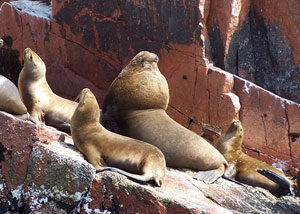
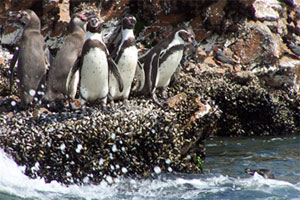
READY TO GET STARTED?
- If you are registered, then sign in to CANVAS for Week 1 details and requirements. The class will be available at least a week before the semester starts.
- Purchase the correct semester edition of the Oceanography 1 Workbook.
Welcome aboard!